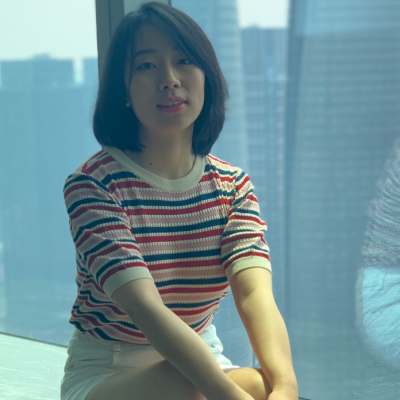Student Spotlight: Yun Liu

November 16, 2020
Yun Liu is a master of public health student from China. After attending China Agricultural University and Rutgers University, she came to Cornell to study health equity and address the needs of all populations.
What is your area of research and why is it important?
My research interests focus on the macro factors that impact public health, such as people’s social living situations and environmental factors. For example, how can we improve the health outcome of a patient with diabetes by ensuring his/her/their access to healthy foods or how can we reduce the child asthma rate in areas with poor air quality? I think the health status of the population of a society essentially reflects the overall health of the society in terms of its pattern of economic development, resource distribution, etc. Studying the upstream social determinants of health is important because those factors influence population health fundamentally and implicitly.
What are the larger implications of this research?
I view my research as an attempt of “sewing up” the gaps between fast social development and humans’ health needs by identifying, uplifting, and addressing the health needs of all populations, particularly those of vulnerable populations. The larger implication, and goal of my research, is to improve health equity and to achieve it in the long term.
What inspired you to choose this field of study?
I come from a small town in the north of China where I witnessed many coal workers, including my grandfather, suffer from lung disease. When I studied in Beijing, I also met kids of immigrant workers who were not supplied with nutrient-rich foods to ensure their learning and physical activities. Those experiences motivated me to focus my study on achieving health equity within a population. To me, protecting the health—a basic human right—of every individual is protecting the potentials of the entire human race, which serves as the rich soil for the progress of human civilization.
How has the pandemic influenced the focus of your studies?
The pandemic disproportionally affected vulnerable populations with less access to medical resources and social protection, and it aggravated food insecurity by disrupting the whole food supply chain and people’s connection with food assistance programs. This motivated me to research how to address health equity by integrating social needs into primary care settings.
How has the pandemic changed your involvement at Cornell? What are you doing to impact the campus and community as a public health student?
I am working at the observation station of the surveillance testing site to help people with their COVID-19 tests.
What kind of impact would you like your research to make on the world?
I hope my research and my future work would help to reduce health disparities and promote health equity in the world.
What are your hobbies or interests outside of your research or scholarship?
I like reading literature and philosophy and like to write sometimes. I think literature is the most vivid sketch of human history, often narrating from the point of view of a single individual while reflecting on how the society was at that time through the vicissitudes of the individual’s life. Philosophy creates a space between the real world and my inner world, in which I could think, and reframe the world I see.
Why did you choose Cornell to pursue your degree?
I was motivated to pursue my graduate degree in Cornell primarily for two reasons. One reason was that one of the key leaders of China’s new cultural movement (1919), Hu Shih, studied and graduated from Cornell. As a young woman who was enlightened by the liberal social views cultivated by this movement, I treasure the learning experience at Cornell as a dialogue with those pioneers throughout history and time. Another reason was that I love nature, and I cannot find another place like Ithaca that shows the beauty and diversity of natural environments in such a humble while fascinating way.
